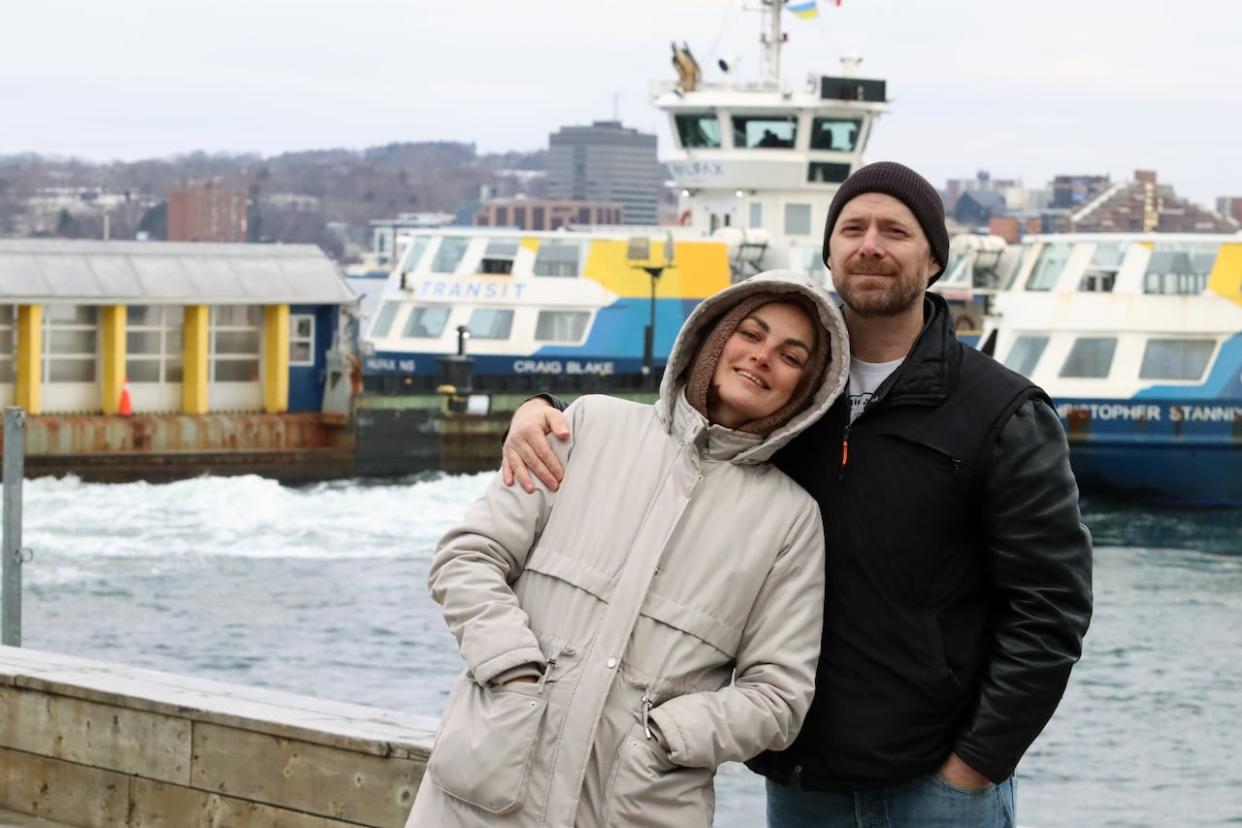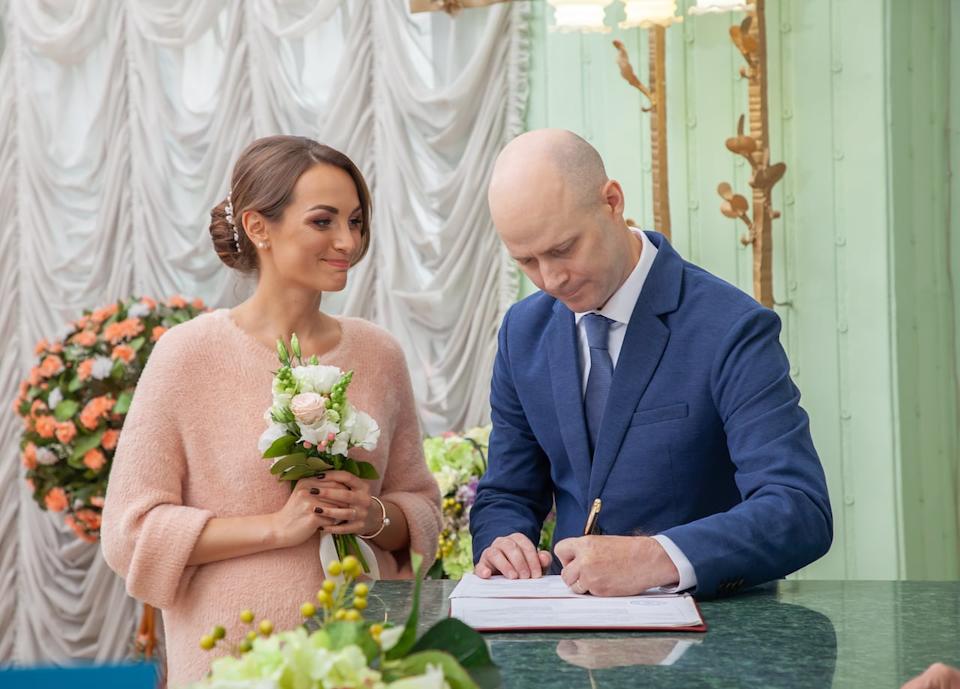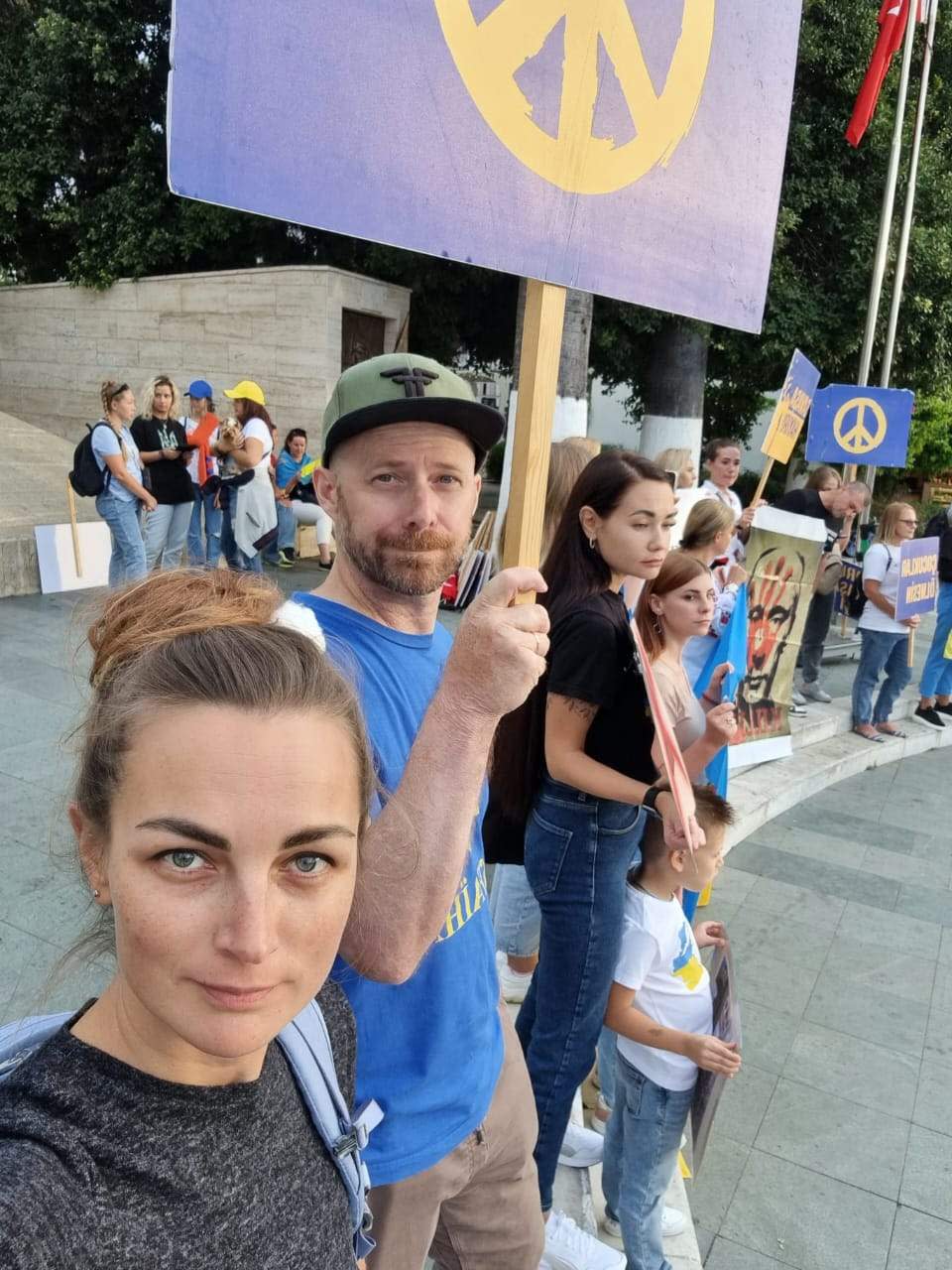Couple finally together in Nova Scotia after lengthy immigration struggle

As the war in Ukraine approaches a bleak second anniversary, one couple in Nova Scotia is proving there are still happy endings.
Scott Stephenson of Dartmouth met Anna Babkova while he was on vacation in Ukraine in 2019. They were married in Kyiv in September of 2020 with intentions to move to Canada together.
They would endure war and pandemic before arriving in the province on Dec. 28 — two and a half years after their immigration process began.
"It was shocking to me how long it took," Stephenson said.
Babkova applied for a visitor visa in the summer of 2021 using her Russian passport, with the intention of applying for permanent residency after she arrived in Canada. When the visa was denied, the couple were separated for a year while Stephenson returned to Halifax and started a permanent residency application for Babkova.
"Then the war broke out," Stephenson said. "That changed things."
Stephenson returned to Canada in September 2021 to get vaccinated against COVID-19. He flew Babkova to Turkey to escape the war on Feb.15, 2022 just nine days before Russia invaded Ukraine, escalating a conflict that started in 2014.
The UN's refugee agency now estimates more than six million people have fled Ukraine since the war began, with more than five million others displaced within the country.
"The village where we live, a few houses were bombed," Babkova said.
The very spot where she and Stephenson met, next to a children's playground, was turned into a crater by a missile.

Babkova and Stephenson were married in Kyiv, Ukraine, in September 2020. (Scott Stephenson)
Babkova applied for a visa under the Canada-Ukraine Authorization for Emergency Travel, which Immigration, Refugees and Citizenship Canada says is for people affected by the war. But her application was denied because she isn't a Ukrainian citizen. She appealed the decision and was denied again.
"European countries were good with people who are not citizens that are going from Ukraine, from war," Babkova said.
But Canada's emergency policy was not.
"Even our lawyer was shocked that it was denied," Stephenson said.
The Canada-Ukraine Authorization for Emergency Travel provides Ukrainians and their immediate family members of any nationality the opportunity to stay in Canada as temporary residents for up to three years. A spokesperson from Immigration, Refugees and Citizenship Canada said that processing times posted online are an estimate and not a guarantee.

Stephenson and Babkova are shown at a rally in support of Ukraine in Bodrum, Turkey, in September 2022. (Scott Stephenson and Anna Babkova)
Babkova was born in Hungary but her family moved to Ukraine when she was a child. When the Soviet Union fell, they had a choice: Stay in Ukraine or move to Russia.
Her family chose Russia. Babkova later returned to Ukraine and became a permanent resident in 2010.
Andy Semotiuk is a second-generation Ukrainian immigrant in Toronto who's been practising immigration law in Canada and the United States for 40 years. He said Babkova's claim was weaker because Canadian efforts to bring people from Ukraine are based on citizenship.
"Normally for a marriage-based application, we're looking at over a year, maybe a year and a half, for it to be processed," Semotiuk said.
Frustrated with the Canadian immigration system, Stephenson met Babkova in Turkey in September 2022. They spent a year in that country, then travelled to Georgia, when their Turkish visas expired.
"It's insane to me that a Canadian citizen who's married to someone in the middle of a war had this much trouble bringing them home safely to Canada," Stephenson said.
He said he understands that there is a process, but there needs to be a contingency for emergencies.
Semotiuk said it's possible that the couple were delayed by processing and bad timing.
"As of late last year, over a million applications from Ukraine were received from the period of the war," Semotiuk said.
Semotiuk said Canada could be doing a better job of processing spousal applications and providing emergency support. He suggests letting spouses wait in Canada during processing. In cases where determining citizenship is complicated, like Babkova's, Semotiuk suggests applying as a refugee.
"You could make a very strong case in her instance for her to be a refugee claimant," Semotiuk said, adding that marriage-based sponsorship is usually easier. He offered one final suggestion when all else fails.
"Pick up the phone, make an appointment to see your member of Parliament," Semotiuk said. "That's their job."
Babkova received her Canadian permanent resident visa on Christmas day. Since arriving in Canada, she said part of her still can't accept she's escaped the war.
"Step by step, I started to feel that I am safe."
MORE TOP STORIES

